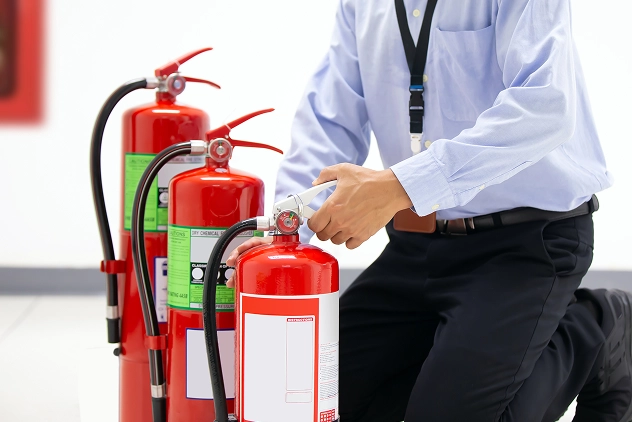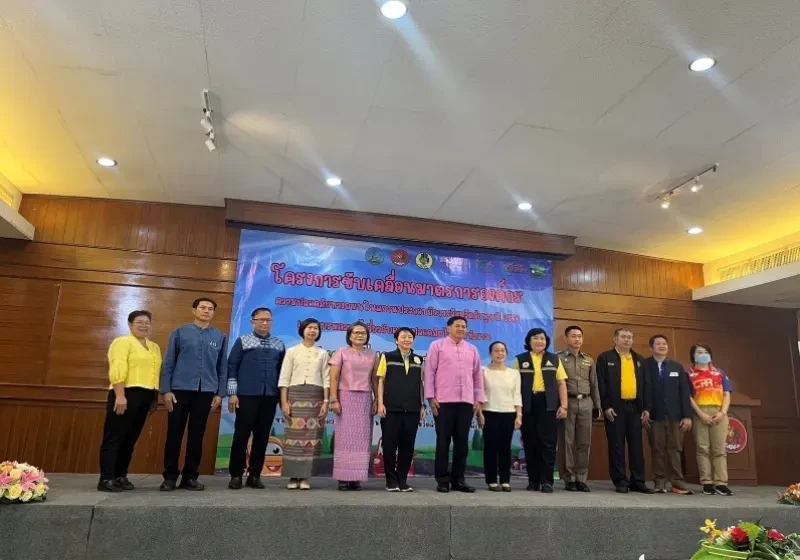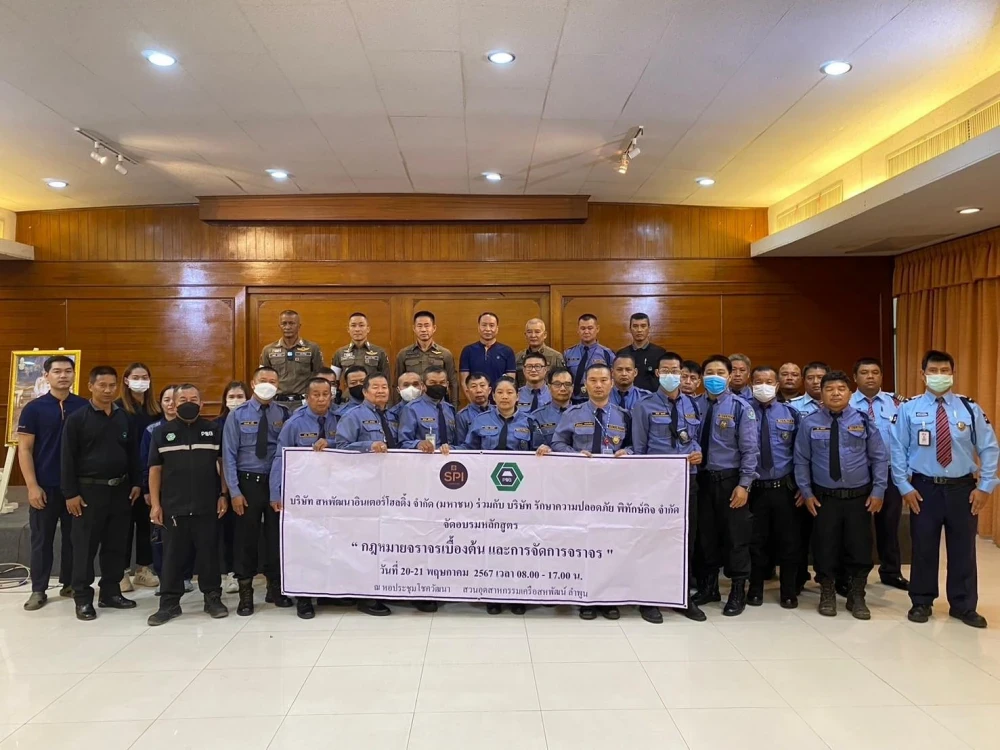Importance and Mission
The Company is dedicated to managing its Saha group Industrial Parks as safe and secure communities, fostering confidence in its safety management practices among customers, local communities, society, and other stakeholders. Given that the Saha Group Industrial Parks are home to various factories, there is an inherent risk of incidents or emergencies, such as traffic accidents, fires, or chemical spills within the factories located in these parks. To mitigate these risks, the Company has implemented measures and processes focused on occupational health and safety, guided by established management systems such as ISO 9001:2015 for quality management, ISO 14001:2015 for environmental management, and the Thai Labor Standard TLS 8001-2563. In addition, the Company has announced safety, occupational health, and workplace environment policies to raise awareness among employees and stakeholders about the importance of workplace safety. These efforts aim to ensure a high quality of life for employees and provide a safe and healthy working environment for all.
Goals and Performance
Impact and Performance Highlights
The number of work-related accidents resulting in work stoppages of employees and contractors 0 Case
Lost Time Injury Rate (LTIR) per 1 million working hours 0 Case
Report emergency situations and issues to relevant parties and proceed to the incident site with in 5 Mins
Management Approach
Beyond ensuring efficient safety management practices, the Company places significant importance on complying with relevant laws and regulations. It also emphasizes cultivating a culture of occupational health and safety among all stakeholders operating within its Saha Group Industrial Parks, from executives and employees to contractors. The ultimate target is to achieve zero accidents, preventing any incidents resulting in work stoppages. To achieve this target, the Company implements initiatives aimed at promoting workplace safety and enhancing employee health, structured within the following operational framework:
Operational framework
- Each department is required to identify risks that may lead to unsafe conditions or pose health hazards to employees and stakeholders. Departments must also establish control measures to mitigate and reduce these risks. Additionally, a risk review process must be conducted at least once per year.
- In the event of an accident or abnormal incident during work operations, the affected employee or their supervisor must report the occurrence to the safety officer. A thorough investigation process will then be conducted to identify the root cause, and preventive measures will be implemented to ensure such incidents do not recur in the future.
- Ensuring a safe and suitable work environment by conducting environmental assessments in various areas based on risk factors. This includes maintaining a healthy workplace and ensuring that all equipment is regularly inspected and kept in good working condition.
- Monitoring employee health prior to commencing work to proactively address potential health issues. Health benefits provided include annual health check-ups, financial support for medical expenses, and employee health insurance.
- Reinforcing preventive measures through vaccination programs, such as the annual flu vaccine, and basic health screenings, including breast cancer and cervical cancer screenings.
- Promoting activities and clubs to enhance both physical and mental wellbeing by establishing recreational clubs based on employee interests.
- Conducting annual emergency response training ensures that employees are prepared to handle crises effectively. For instance, basic fire-fighting training and organizing annual fire evacuation drills equip employees with the necessary skills to suppress fires and safely respond to fire incidents in the workplace. In addition, recording training details and outcomes, evaluating evacuation times, and assessing the effectiveness of communication during emergencies.
Stakeholders Directly Impacted
Employee/ Executive
Receive protection of labor rights, a safe working environment, and opportunities for capacity development.
Suppliers
Undergo human rights assessments and comply with the business code of conduct.
Community and Society
Receive support for quality of life, career development, and participation in various activities.
Customers
Receive high-quality and safe products and services.
Government Sectors
Receive fair compensation, and the company operates with transparency.







